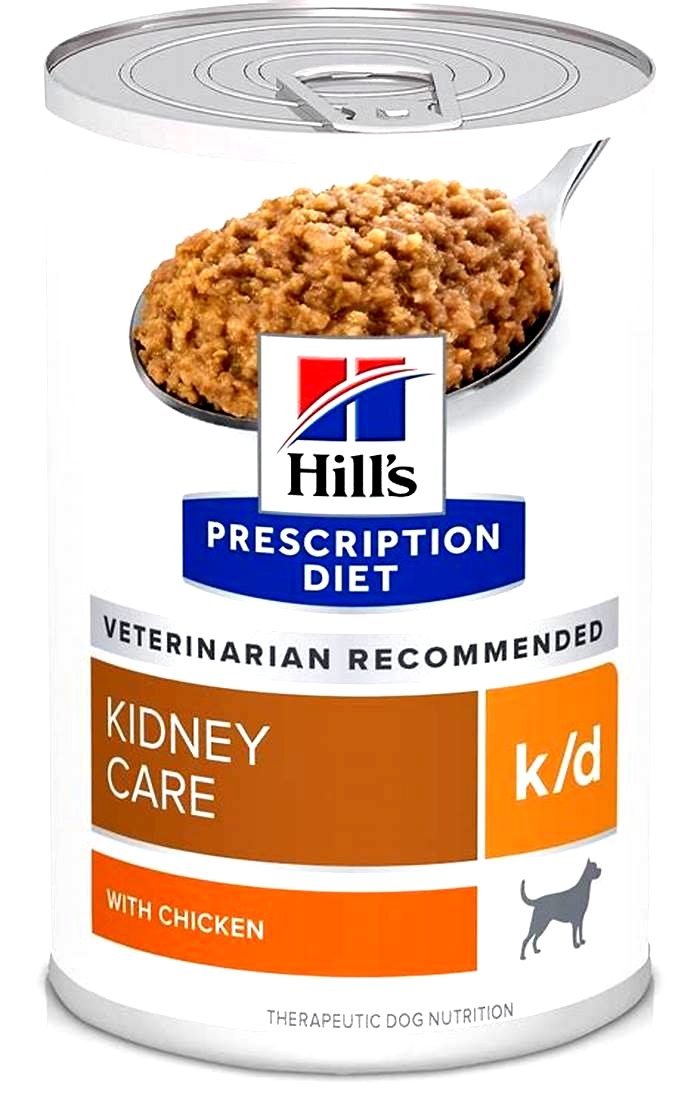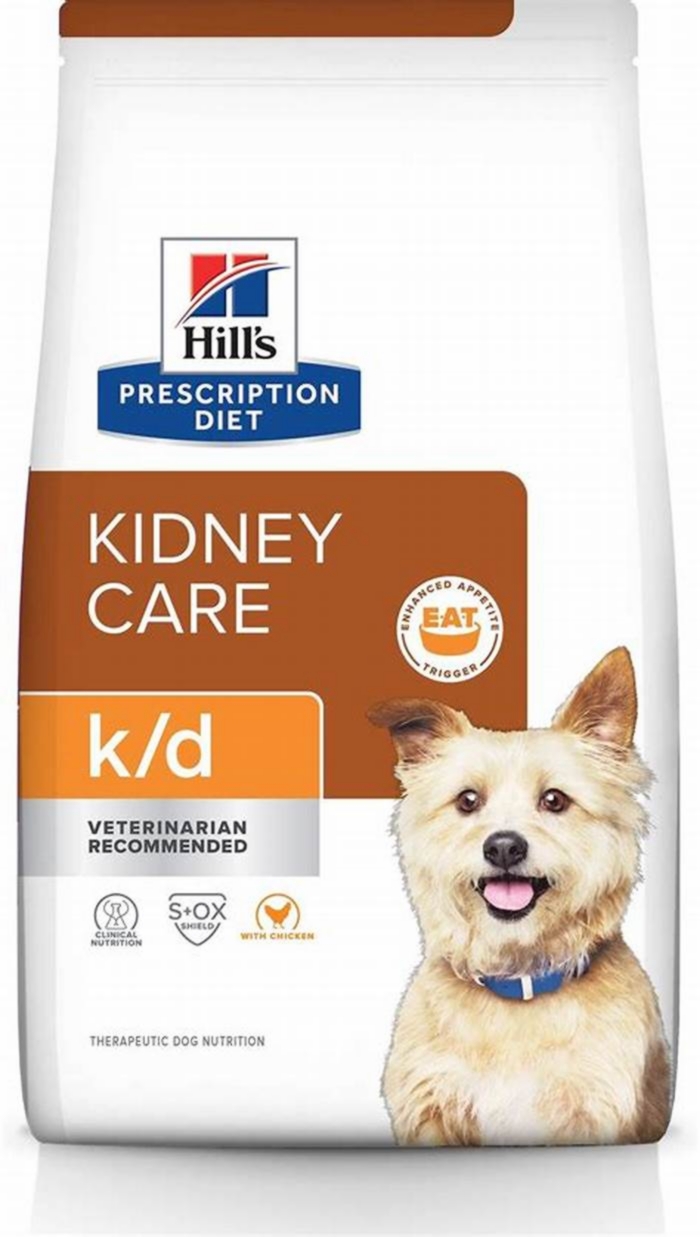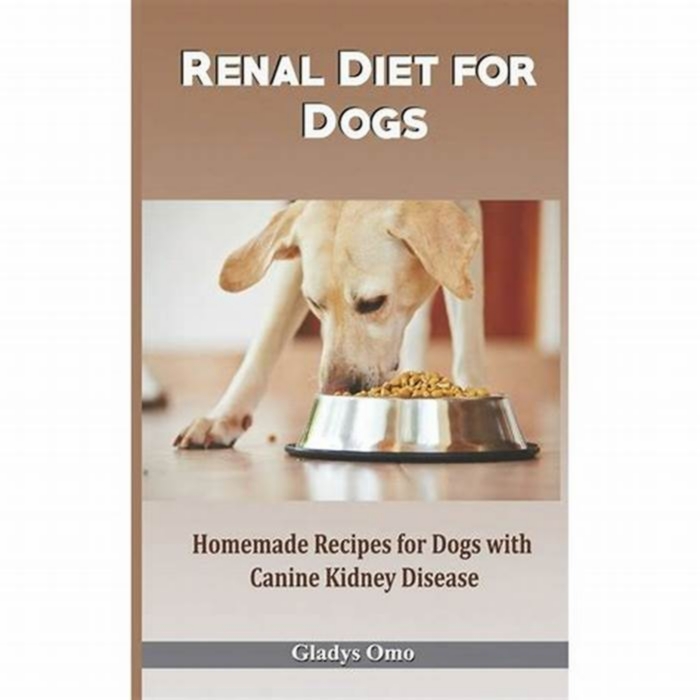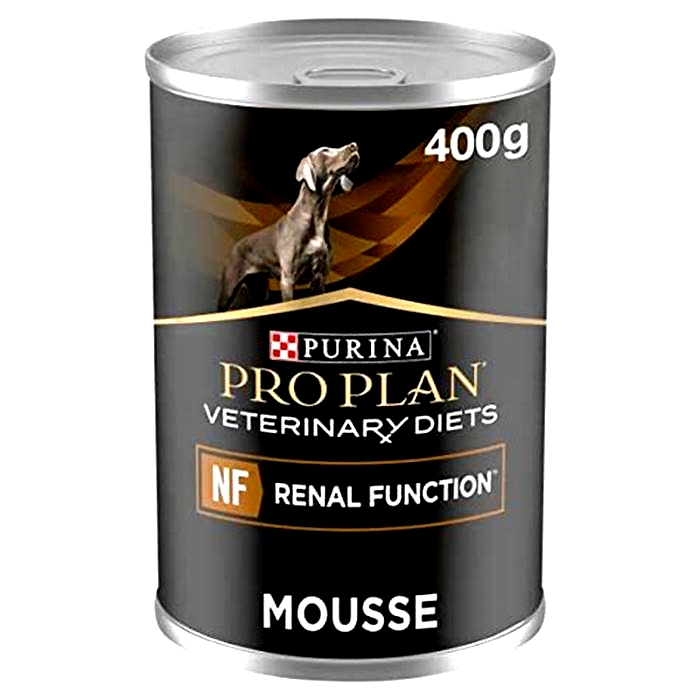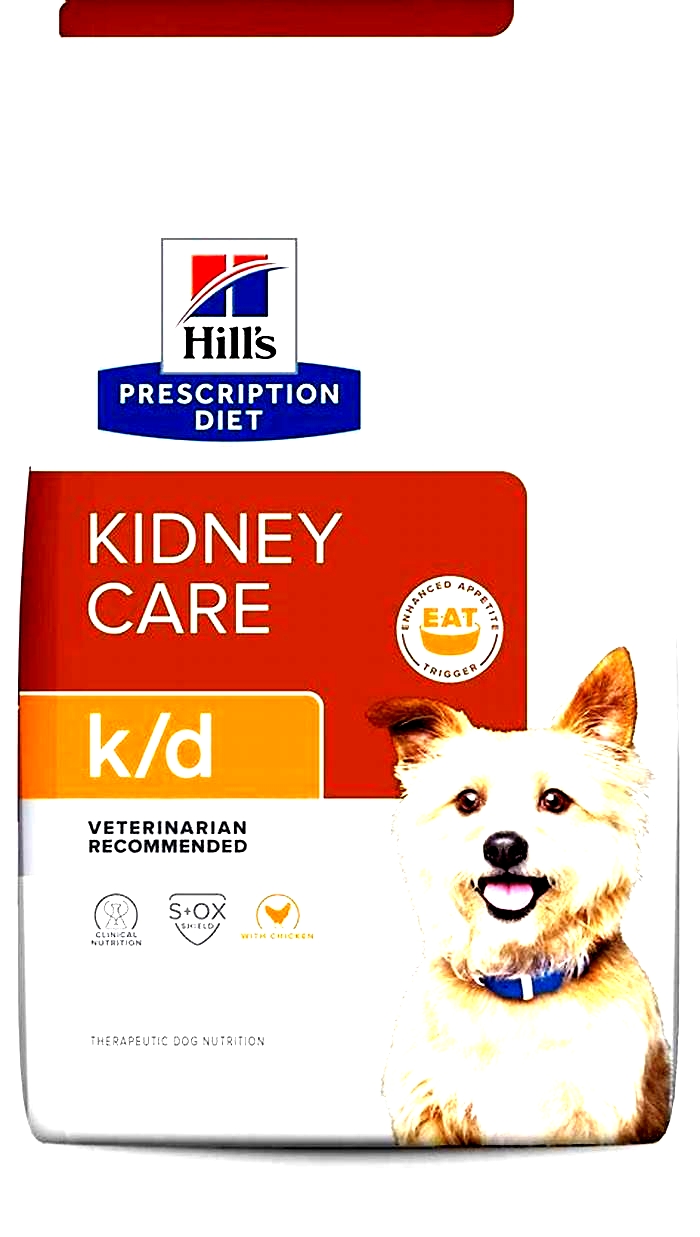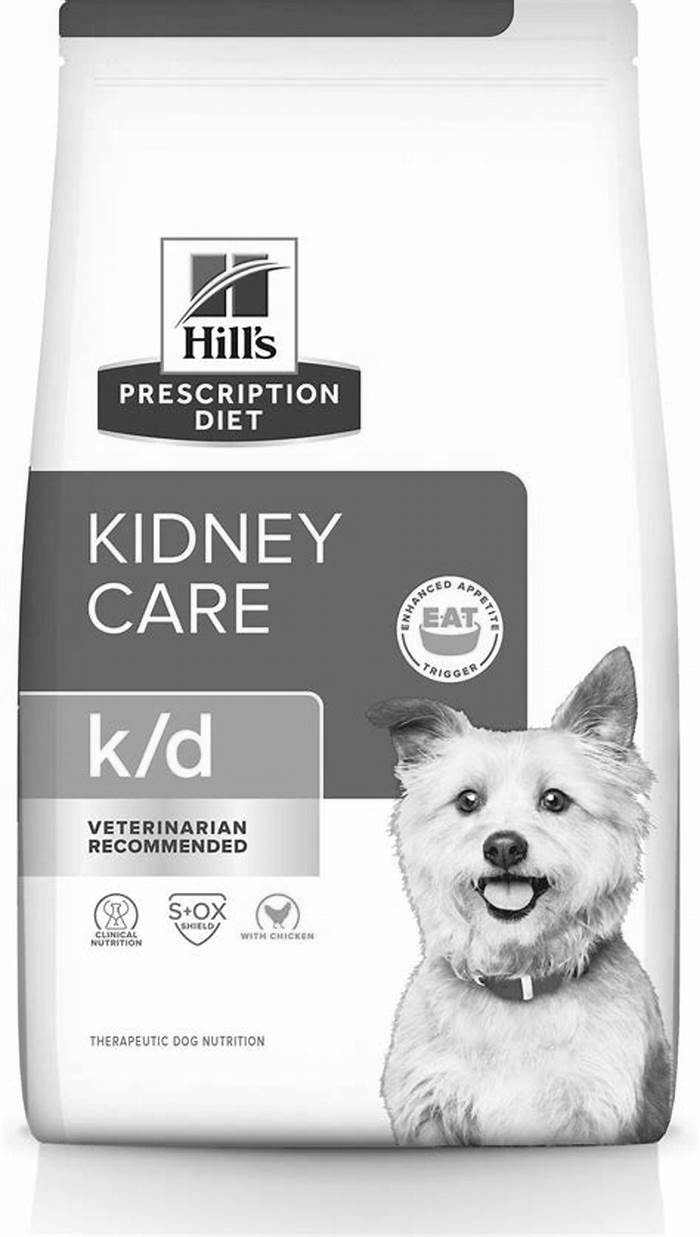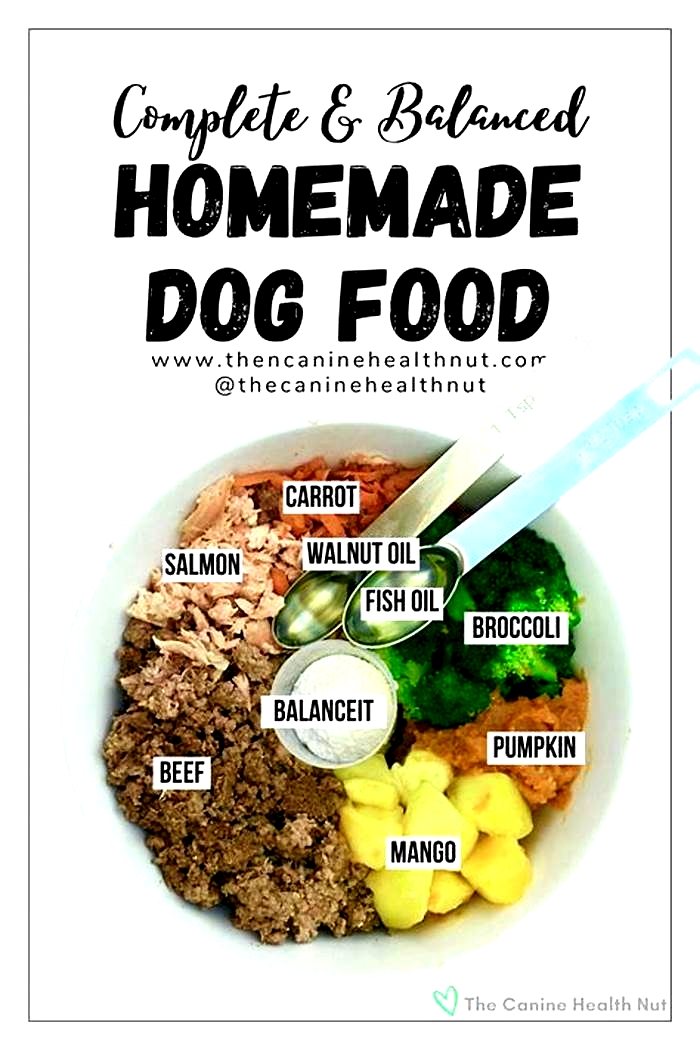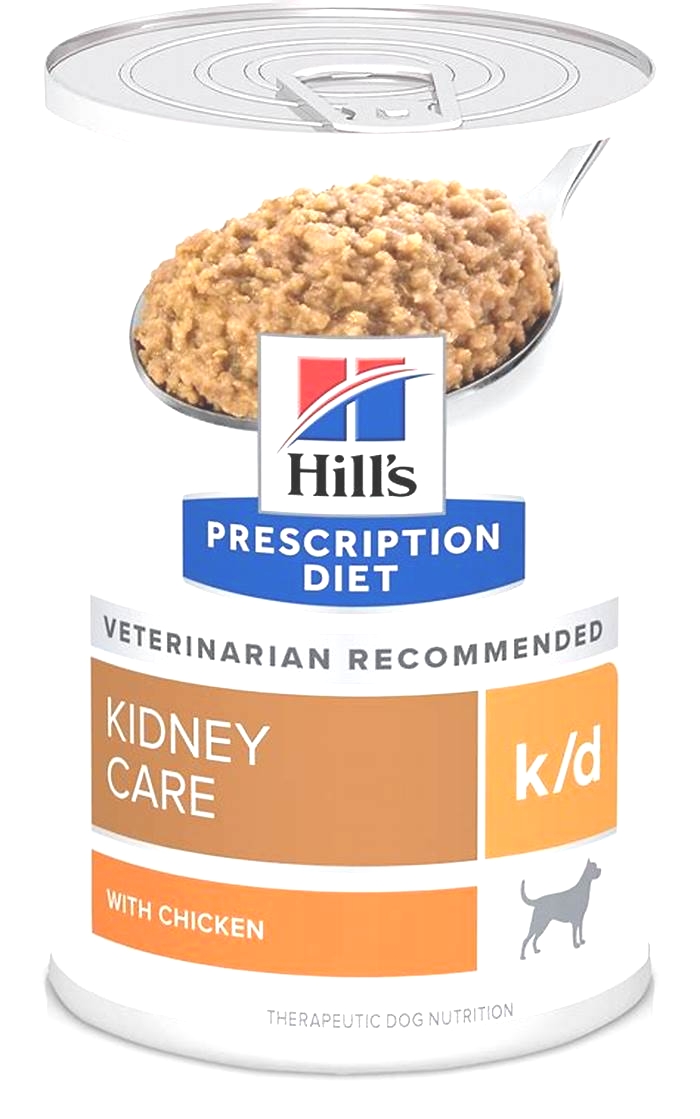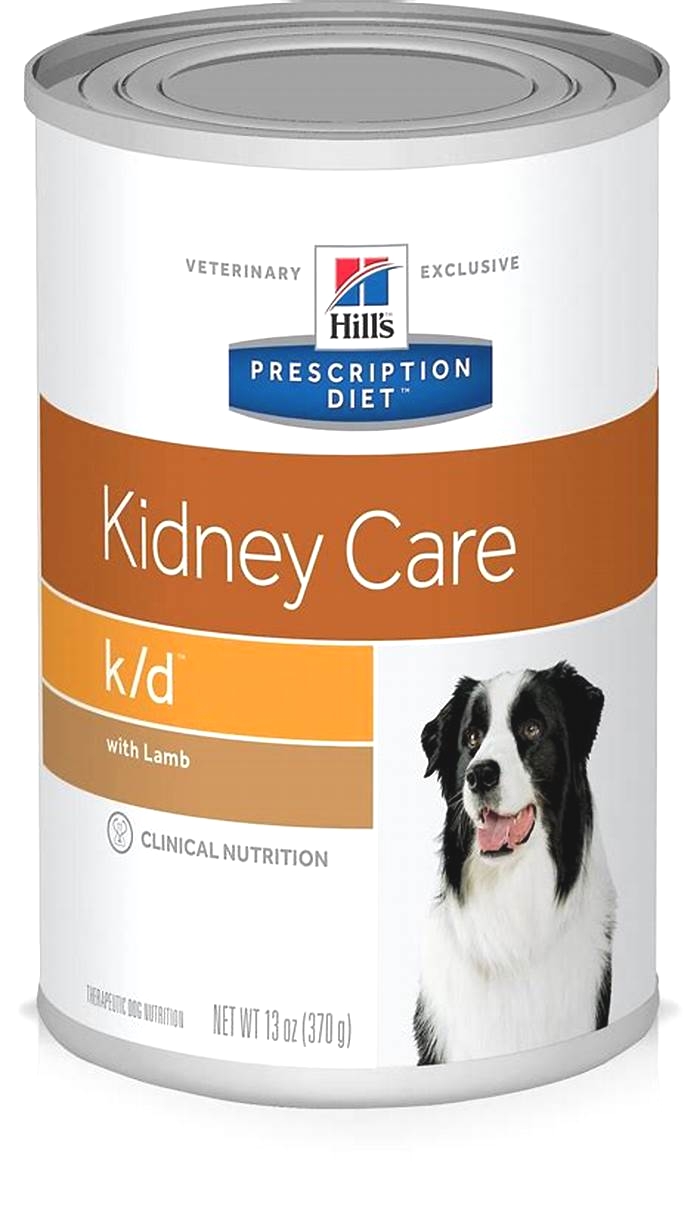hill s prescription diet for dogs with kidney disease
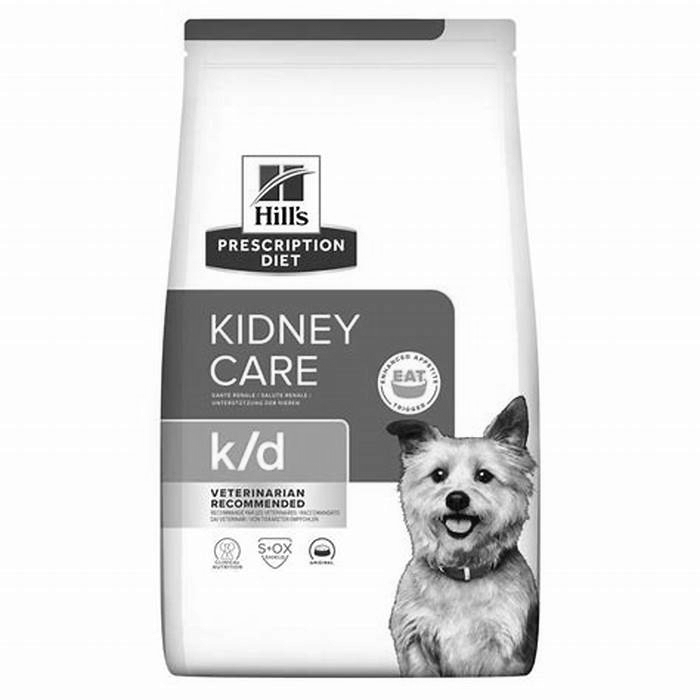
k/d starter kit Dog Food
INGREDIENTS:
Hill's Prescription Diet k/d with Chicken Dry Dog Food
- Brown Rice, Brewers Rice, Pork Fat, Cracked Pearled Barley, Chicken, Egg Product, Dried Beet Pulp, Whole Grain Sorghum, Corn Gluten Meal, Chicken Liver Flavor, Soybean Oil, Fish Oil, Calcium Carbonate, Lactic Acid, L-Lysine, Pork Liver Flavor, Potassium Chloride, Potassium Citrate, DL-Methionine, vitamins (Vitamin E Supplement, L-Ascorbyl-2-Polyphosphate (source of Vitamin C), Niacin Supplement, Thiamine Mononitrate, Pyridoxine Hydrochloride, Calcium Pantothenate, Riboflavin Supplement, Vitamin A Supplement, Vitamin B12 Supplement, Biotin, Folic Acid, Vitamin D3 Supplement), L-Threonine, Choline Chloride, Iodized Salt, Taurine, Magnesium Oxide, minerals (Ferrous Sulfate, Zinc Oxide, Copper Sulfate, Manganous Oxide, Calcium Iodate, Sodium Selenite), L-Carnitine, L-Tryptophan, Mixed Tocopherols for freshness, Natural Flavors, Beta-Carotene.
Hill's Prescription Diet k/d with Lamb Dry Dog Food
Brown Rice, Brewers Rice, Chicken Fat, Cracked Pearled Barley, Whole Grain Sorghum, Lamb, Egg Product, Dried Beet Pulp, Hydrolyzed Chicken Flavor, Soybean Meal, Corn Gluten Meal, Soybean Oil, Fish Oil, Pork Liver Flavor, Lactic Acid, Calcium Sulfate, L-Lysine, Calcium Carbonate, Potassium Chloride, Potassium Citrate, DL-Methionine, vitamins (Vitamin E Supplement, L-Ascorbyl-2-Polyphosphate (source of Vitamin C), Niacin Supplement, Thiamine Mononitrate, Pyridoxine Hydrochloride, Calcium Pantothenate, Riboflavin Supplement, Vitamin A Supplement, Biotin, Vitamin B12 Supplement, Folic Acid, Vitamin D3 Supplement), Iodized Salt, Choline Chloride, L-Threonine, Taurine, minerals (Ferrous Sulfate, Zinc Oxide, Copper Sulfate, Manganous Oxide, Calcium Iodate, Sodium Selenite), L-Tryptophan, L-Carnitine, Magnesium Oxide, Mixed Tocopherols for freshness, Natural Flavors, Beta-Carotene.
Hill's Prescription Diet k/d with Chicken Dog Food
Water, Corn Starch, Pork Liver, Chicken, Chicken Fat, Dextrose, Flaxseed, Chicken Liver Flavor, Dried Beet Pulp, Fish Oil, Powdered Cellulose, Calcium Carbonate, Egg Whites, L-Lysine, Potassium Citrate, Potassium Chloride, Betaine, DL-Methionine, Whole Grain Oats, Choline Chloride, vitamins (Vitamin E Supplement, L-Ascorbyl-2-Polyphosphate (source of Vitamin C), Ascorbic Acid (source of Vitamin C), Thiamine Mononitrate, Niacin Supplement, Vitamin A Supplement, Calcium Pantothenate, Vitamin B12 Supplement, Pyridoxine Hydrochloride, Riboflavin Supplement, Biotin, Menadione Sodium Bisulfite Complex (source of Vitamin K), Folic Acid, Vitamin D3 Supplement), Fructooligosaccharides (FOS), minerals (Ferrous Sulfate, Zinc Oxide, Manganese Sulfate, Copper Sulfate, Calcium Iodate), Magnesium Oxide, L-Threonine, Taurine, Sodium Tripolyphosphate, L-Carnitine, Iodized Salt, L-Tryptophan, Beta-Carotene.
Hill's Prescription Diet k/d with Lamb Wet Dog Food
Water, Pork Liver, Corn Starch, Lamb, Chicken Fat, Dextrose, Flaxseed, Dried Beet Pulp, Chicken Liver Flavor, Fish Oil, Powdered Cellulose, Calcium Carbonate, Potassium Citrate, L-Lysine, Potassium Chloride, Betaine, DL-Methionine, Whole Grain Oats, vitamins (Vitamin E Supplement, Thiamine Mononitrate, Ascorbic Acid (source of Vitamin C), L-Ascorbyl-2-Polyphosphate (source of Vitamin C), Niacin Supplement, Vitamin A Supplement, Calcium Pantothenate, Vitamin B12 Supplement, Pyridoxine Hydrochloride, Riboflavin Supplement, Menadione Sodium Bisulfite Complex (source of Vitamin K), Biotin, Folic Acid, Vitamin D3 Supplement), Fructooligosaccharides (FOS), Choline Chloride, Magnesium Oxide, minerals (Ferrous Sulfate, Zinc Oxide, Manganese Sulfate, Copper Sulfate, Calcium Iodate), L-Threonine, Taurine, Iodized Salt, Sodium Tripolyphosphate, L-Carnitine, L-Tryptophan, Beta-Carotene.
Hill's Prescription Diet k/d Chicken & Vegetable Stew Dog Food
Water, Chicken, Carrots, Rice, Chicken Fat, Pork Liver, Rice Starch, Dextrose, Green Peas, Sugar, Egg Whites, Dried Beet Pulp, Flaxseed, Fish Oil, Hydrolyzed Chicken Flavor, Potassium Alginate, Powdered Cellulose, Calcium Lactate, Calcium Gluconate, Natural Flavor, Brewers Dried Yeast, Potassium Citrate, Guar Gum, Betaine, L-Lysine, Whole Grain Oats, vitamins (Vitamin E Supplement, Ascorbic Acid (source of Vitamin C), Thiamine Mononitrate, Niacin Supplement, Vitamin A Supplement, Calcium Pantothenate, Vitamin B12 Supplement, Pyridoxine Hydrochloride, Riboflavin Supplement, Biotin, Menadione Sodium Bisulfite Complex (source of Vitamin K), Folic Acid, Vitamin D3 Supplement), Fructooligosaccharides (FOS), Choline Chloride, Calcium Chloride, Dicalcium Phosphate, Taurine, Magnesium Oxide, L-Threonine, Monosodium Phosphate, L-Carnitine, L-Tryptophan, minerals (Zinc Oxide, Ferrous Sulfate, Copper Sulfate, Manganese Sulfate, Manganous Oxide, Calcium Iodate, Sodium Selenite), Beta-Carotene, Calcium Carbonate.
Hill's Prescription Diet k/d Beef & Vegetable Stew Dog Food
Water, Beef, Carrots, Pork Liver, Rice, Chicken Fat, Rice Starch, Dextrose, Green Peas, Sugar, Hydrolyzed Chicken Flavor, Powdered Cellulose, Fish Oil, Dried Beet Pulp, Flaxseed, Egg Whites, Potassium Alginate, Caramel color, Calcium Lactate, Calcium Gluconate, Natural Flavor, Potassium Citrate, Brewers Dried Yeast, Choline Chloride, Guar Gum, Betaine, Soybean Oil, Whole Grain Oats, vitamins (Vitamin E Supplement, Thiamine Mononitrate, Ascorbic Acid (source of Vitamin C), Niacin Supplement, Vitamin A Supplement, Calcium Pantothenate, Vitamin B12 Supplement, Pyridoxine Hydrochloride, Riboflavin Supplement, Biotin, Menadione Sodium Bisulfite Complex (source of Vitamin K), Folic Acid, Vitamin D3 Supplement), L-Lysine, Fructooligosaccharides (FOS), Calcium Chloride, Dicalcium Phosphate, Monosodium Phosphate, Magnesium Oxide, L-Arginine, L-Threonine, Taurine, minerals (Ferrous Sulfate, Zinc Oxide, Copper Sulfate, Manganese Sulfate, Calcium Iodate), L-Tryptophan, L-Carnitine, Beta-Carotene, Calcium Carbonate.
k/d with Chicken Dog Food
INGREDIENTS:Brewers Rice, Chicken Fat, Brown Rice, Whole Grain Sorghum, Chicken, Dried Beet Pulp, Egg Product, Hydrolyzed Chicken Flavor, Corn Gluten Meal, Fish Oil, Pork Liver Flavor, Calcium Carbonate, Lactic Acid, Soybean Oil, L-Lysine, Potassium Chloride, Betaine, Whole Grain Oats, DL-Methionine, Fructooligosaccharides (FOS), vitamins (Vitamin E Supplement, L-Ascorbyl-2-Polyphosphate (source of Vitamin C), Niacin Supplement, Thiamine Mononitrate, Calcium Pantothenate, Pyridoxine Hydrochloride, Vitamin A Supplement, Riboflavin Supplement, Biotin, Vitamin B12 Supplement, Folic Acid, Vitamin D3 Supplement), Potassium Citrate, Choline Chloride, L-Threonine, Iodized Salt, Taurine, minerals (Ferrous Sulfate, Zinc Oxide, Copper Sulfate, Manganous Oxide, Calcium Iodate, Sodium Selenite), L-Tryptophan, L-Carnitine, Magnesium Oxide, Mixed Tocopherols for freshness, Natural Flavors, Beta-Carotene.
Facts About Kidney Disease in Dogs
The kidneys, the frequently forgotten but life-sustaining organs, remove waste from the bloodstream and regulate fluids in the body. If the kidneys are not able to do their job, the result could be life threatening for your dog.
What is kidney disease?
Kidneys are very important because they remove waste substances from the blood, and maintain the normal balance of fluid and minerals within the body. Any condition which damages the kidneys is referred to as kidney or renal disease. In some cases, dogs may show early warning signs of kidney disease. However, signs of serious illness only appear after 75% of the kidneys function has already been lost. This is the reason why early detection is so important, especially for dogs age 7 or older. A simple blood test and urinalysis are all that is required to detect kidney disease.
What causes kidney disease in dogs?
The kidneys can be damaged by a wide range of conditions including injury, infection, toxins, and cancer. This damage is usually irreversible. Kidney disease is common in dogs, but with early diagnosis and treatment, progression can be limited and many dogs go on to live happily for years after diagnosis. Factors that can make dogs more prone to kidney disease include the following:
Age: The chance of developing kidney problems in dogs increases after the age of 7.
Food: Some dog foods high in phosphorus and dog foods with increased levels of protein can increase the progression of kidney disease.
Breed: Some dog breeds, including English Cocker spaniels, bull terriers and German shepherds, are more likely to develop particular types of kidney disease. Learn more about a very special German shepherd named Buddy that was diagnosed with kidney failure.
Environment: Some chemicals, including certain disinfectants, antifreeze, lead paint and some human medications can damage the kidneys.
Does my dog have kidney disease?
The signs of kidney disease can be difficult to recognize but if you notice any of the following, it could mean your dog has a kidney problem. Please check with your veterinarian if you are seeing any of these signs.
- Increased thirst and urine production
- Decreased appetite
- Weight loss
- Bad breath
- Vomiting and diarrhea
- Sore mouth
- Weakness
- Lack of energy and increased sleeping
- Poor coat appearance
- Depression

If your dog is diagnosed with kidney disease, your veterinarian may describe it as either acute or chronic.
Acute Kidney Disease: Acute, or sudden, kidney disorders can be caused by:
- Blood loss
- Shock
- Surgical stress
- Trauma
- Severe dehydration
- Poisons
- Drugs
- Obstructed urine flow
- Infection
Chronic Kidney Disease: Chronic, or long-term, kidney disease can result from the above factors, plus: Breed and hereditary tendencies, in coordination with nutritional factors and immune system defects. Chronic kidney disease is progressive and irreversible.
Unfortunately, the signs of kidney disease usually do not appear until 75% of kidney function has been lost. Once chronic kidney failure develops, it cannot be reversed.
IMPORTANT: Early stages of kidney disease will show no signs or symptoms. An increase in thirst may be the first sign of kidney failure if you notice this, or any of the above signs, consult your veterinarian immediately.
Treatment: The importance of nutrition
The food your dog eats plays an important role in his overall health and well-being. If your dog is diagnosed with kidney or renal disease, modifying his food can help manage the disease by reducing the amounts of protein, phosphorus and salt in his food. Phosphorus restriction seems especially important in lessening the severity of the clinical signs and progression of kidney damage. Reducing protein levels may also help restore normal acid-base levels. Balanced nutrition is an essential part of an active, healthy lifestyle. If your dog has kidney problems, the right nutrition can positively impact your dogs quality of life. For accurate diagnosis and treatment options, always consult your veterinarian and ask them to recommend the best food for your dogs kidney health.
Ask Your Veterinarian About Kidney Disease:
- Are there any foods I should avoid giving my dog because of his condition?
- Ask how human food may affect your dogs health.
- Would you recommend a Hills Prescription Diet dog food for my dogs kidney health?
- Ask about special nutritional concerns for your dog
- How much / how often you should feed the recommended food to your dog
- Discuss which treats you can feed your dog with the recommended food
- How quickly should I expect to see signs of improvement in my dogs condition?
- Can you provide me with written instructions or a booklet on kidney disease for my dog?
- What is the best way (email/phone) to reach you or your hospital if I have questions?
- Ask if you need a follow-up appointment.
- Ask if a reminder email or notice will be sent.
Renal Diet for Dogs: A Guide on Feeding
Chronic kidney disease in dogs is a progressive condition with the prevalence of 25% of dogs from veterinary clinics, with 9-16% mortality rate.
Senior geriatric dogs and some breeds are more likely to suffer from this condition.
Fortunately, early detection and dietary switch to a renal diet for dogs was shown in studies to significantly improve CKD condition.
What is Renal Disease in Dogs?
Canine renal disease, or chronic kidney disease in dogs, is when a dog's kidneys begin to malfunction, eventually losing the ability to remove waste and balance fluids in the dog's body.
In severe cases, this condition causes a complete loss of renal function, resulting in kidney failure and eventually death.
In early stages of kidney disease, it may cause metabolic acidosis, as well as prevention of absorption of water, leading to excessive thirst, increased urination, and nutrient loss.
In moderate cases, decreased blood cell production can lead to anemia and hypertension can occur affecting cardiovascular health.
As the disease progresses over time, bone health may be impaired in the dog, leading to bone pain and an increased risk of fractures.
Ultimately, uremic crisis, the inability of kidneys to eliminate waste products from the dog's body out of the blood leading to fatal blood poisoning, may occur.
For dogs who have been diagnosed with chronic renal disease, nutrition and vet-approved renal diet for dogs is a crucial part of the treatment plan.
Although canine kidney disease is often degenerative, dietary therapy will slow the progression of the disease and prevent further complications, such as complete kidney failure and potential death.
The Renal Diet for Dogs Guide

Therapeutic Dietary Support
There is strongresearch that supports using nutritional adjustments as a tool to combat the progression of renal disease in dogs.
Specific diets for dogs with renal disease and kidney failure were shown to maintain or improve nutrient absorption, delay the onset of uremia, slow disease progression or development of other complications, and extend the expected lifetime.
A veterinarian should be your first point of contact in helping you design a safe and appropriate renal diet for dogs with this condition.
You will have the choice of either switching to other commercial dog foods, prescription foods, homemade dog food diet, or a combination of both.
1. Balanced Level of Phosphate
All renal diets for dogs should contain carefully balanced levels of phosphate.
Phosphorus is an important mineral that is essential for cell structure, energy and bone health.
Low levels are associated with adverse health outcomes and malnutrition.
Although it is an essential part of the diet, balance is key, particularly when it comes to dogs with renaldisease.
As this mineral is metabolized by the kidneys, excessive quantities can place strain on the system due to reduced ability to metabolize the mineral.
Eventually, poorly balanced diet may lead to adverse effects such as weakening of the bones and calcification of body tissues, including the kidneys.
Specific dog kidney health diets contain the optimum level of phosphate and often dietary additives that bind phosphate, allowing it to be excreted through the gastrointestinal system instead of the urinary system.
2. Reduced Levels of Salt
When feeding a dog a renal diet, salt is one of the mostimportant considerations.
Animal studies have shownhow increased levels of salt in the diet to increase the protein excreted in the urine and markedly increase kidney function deterioration.
Similar studies have shown how the reduction of salt intake in dog's diet with kidney problems will slow down the rate of progression of the disease.
The bottom line is to decrease the amount of salt, but not necessarily eliminate it.
3. Low(er) Quantities of High-Quality Protein
Same as with salt, you'll need to reduce the amount of protein in the dog's diet. For this reason, most kidney-friendly options are often labeled as low protein dog foods.
Protein is a vital part of the canines overall nutrition which provides daily energy, promotes healing and maintenance of all tissues and cells in the dog's body.
However, protein breakdown also leads to toxic waste products in the bloodstream that requires processing by the kidneys for excretion through the urine.
Providing a diet that contains low levels of high-quality protein means a reduced amount of waste for the kidneys to process while the pets energy requirements are met.
4. Enhanced Levels of Omega-3 Fatty Acids
Omega-3 and fish oil provide many benefits to dogs, one of which is kidney support.
The supplementation of omega-3 polyunsaturated fatty acids has been suggested by vets because studies have shownits protective qualities and ability to slow the progression of renal disease in dogs.
Omega-3s are also known to promote blood filtering and support kidney function.
Several supplements containing high levels of omega-3s, particularly fish oil for dogs, have been observed to have a significantly positive impact in this area.
As pets who suffer from renal disease are often geriatric animals, they commonly present with other age-related conditions such as canine arthritis and joint pain.
Omega-3 fatty acids have further benefits for these pets as they have been clinically provento reduce pain and inflammation in dogs suffering from arthritis and reduce the need for analgesia.
5. Replacement of Vitamins
A healthy balance of vitamins and minerals may also help with the disease. These can be administered to dogs either via foods or through vitamin supplements.
As kidney disease causes increased urination, dogs often excrete excessive amounts of water-soluble vitamins which ultimately leads to depletion of essential nutrients.
As a result, this depletion can lead to malnutrition and side effects such as anorexia.
Therefore, it is absolutelyvital that these vitamins are replaced.
Ideally, you should do this through diet but supplementation may also work (although there's little evidence).
Specifically designed dog renal diets provide an optimum balance of B Vitamins and Vitamin C, as well as other essential vitamins and minerals for dogs with kidney problems.

Hydration for Dogs with Kidney Problems
Hydration is considered an essential objective in the management of renal disease in dogs.
Kidney disease causes canines to be unable to concentrate the urine.
This means that although you may notice your pet drinking more water and liquids, your dog is actually unable to compensate, which eventually causes dehydration.
Providing your pet with a sufficient amount of liquids reduces clinical signs such as lethargy and weakness, and is also seen to have long-term beneficial effects on renal function.
For this reason, many pet owners choose canned dog food that contains high water content than regular dry dog food brands.
However, it's important to pick the right type of wet dog food that will also factor in other aspects related to dogs with kidney problems.
How to Switch a Dog to a Renal Disease Diet
Loss of appetite is common in pets who are suffering from renal disease, and getting your dog to eat again can be a challenge.
However, as malnutrition in dogs can cause further complications, it is vital that you carefully monitor and encourage proper nutritionand feeding schedule in your pet.
Reduced appetite can often be a symptom of this condition. Taking this into account, dog renal diets are designed to be highly palatable to encourage nutrition in order to maintain healthy weight and energy levels.
Often, a learned food aversion will occur if a pet feels frightened, unwell or is force fed a new commercial dog food diet, or even a homemade dog food recipe. Thus, try to avoid any bad associations with the food such as simultaneously administering medication.
To encourage eating in dogs, attempt to create a comforting environment for your pet when offering his new dog food diet or homemade recipe. The ideal time to try a new diet is in a familiar home environment, rather than during hospitalization.
Introduce the new diet to your dog very slowly, gradually mixing the new food with the old, and continue increasing the kidney diet daily until it is the only one remaining.
If your pet refuses the new diet, consider another type of renal diet. It is essential that dogs with renal disease continue to eat. It is best to change to another therapeutic diet your pet finds more palatable prior to weight loss and muscle breakdown occurring.
Best Dog Food for Renal Disease in Dogs
Nutrition has long been considered of great value and genuine efficacy for the management of kidney disease in dogs. If your pet has been diagnosed with chronic kidney disease and your vet recommended a renal diet for dogs, other than homemade recipes, there are a range of quality, therapeutic diets for purchase.
Before you pick any commercial dog food brand, you must always consult with your vet.
Hill's Prescription Diet k/d Renal Health
This kidney disease dog food is available in dry and wet formulas.It contains small doses of high-quality protein and low levels of sodium.
Hill's Science is the oft-recommended dog food by veterinarians for pets with specific health problems, including kidney disease.
Low in protein and specifically adjusted to tax the dog's kidneys the least, the Hills R/D dog food also contains high levels of antioxidants, which aim to neutralize free radicals in order to slow the disease progression.
Purina Veterinary Diets Canine NF Kidney Function
Unfortunately, this canine renal disease dog food is only available in kibble form only, but it's a similar although less effective and less recommended option by vets (it is cheaper, however).
Purina Veterinary Diets Canine Kidney Function formula contains a nitrogen trap fiber system that aims to reduce nitrogenous waste the key waste product following protein breakdown that causes renal workload.
This system allows the diet to contain moderate levels of good quality protein.
ROYAL CANIN Canine Renal Support
This kidney disease dog food is available in dry formula. It contains low levels of phosphorus and low levels of high quality protein, to reduce renal workload.
Royal Canine Canine Renal Support formula also has a good amount of omega-3's most important parts, EPA and DHA, that help with regulation inflammation in the dog's body.
Again, before choosing any of these diets, please consult with your veterinarian.
I also recommend you read the reviews of these dog foods for renal support to see how other pet owners found them and what their vets told them about these dog food brands.
Disclosure: Wemay earn affiliate commissions at no cost to you from the links on this page. This did notaffect our assessment of products.Read more hereand findfull disclosure here.
Want to share this?


